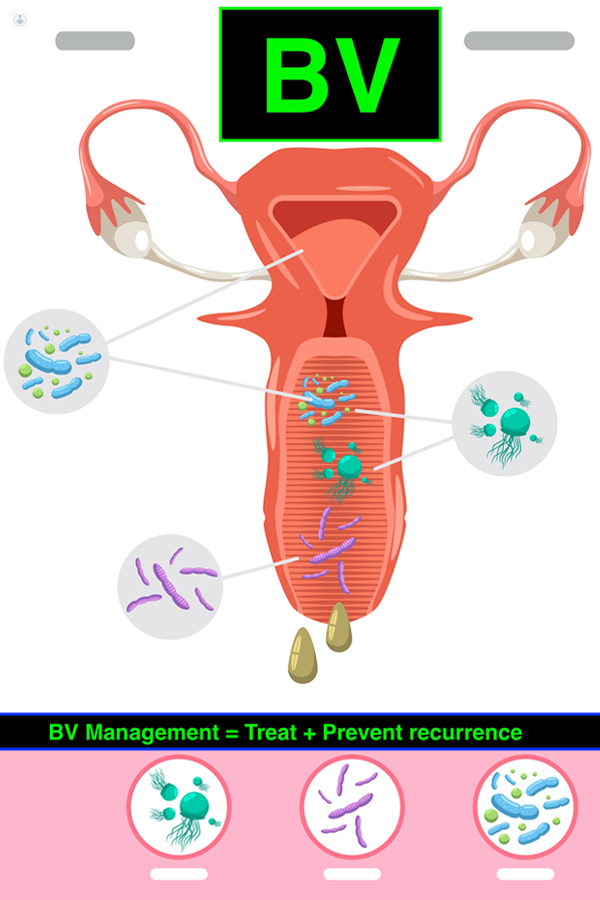How finding the right treatment can prevent BV recurrence
Written by:Bacterial vaginosis (BV) is an unwelcome condition for any woman. When the condition starts to reoccur, it’s frustrating to experience symptoms that just don’t seem to disappear despite antibiotic treatment.
On hand to explain just how recurring BV does just that, alongside how it can be prevented by changing the way it is currently treated, is one of the best gynaecologists in London Mr Mahantesh Karoshi.

What is bacterial vaginosis and how common is recurring BV?
Bacterial vaginosis affects 15 to 50 per cent of women of reproductive age, and recurrence is common after treatment with antibiotics. The high incidence of recurrence suggests the need for new, different treatment to prevent recurrent bacterial vaginosis.

What causes BV?
The vaginal microbiome of most women is dominated by particular lactobacillus species that play an important role in reproductive health. This is by reducing the risk of urogenital infections and complications during pregnancy.
Dysbiosis is a disruption of the vaginal microbial ecosystem with a loss of protective hydrogen peroxide-producing lactobacillus and a marked increase in microbial diversity.
Epidemiological studies have shown that vaginal dysbiosis is associated with Bacterial Vaginosis (BV) and recurrent urinary tract infection (UTIs).
Dysbiosis is also associated with sexually transmitted infections, including HIV, preterm birth and low success rates for in vitro fertilization (IVF).
How are antibiotics ineffective against BV?
Antibiotics are used to treat urogenital infections, but recurrence is common. After treatment with an antibiotic agent, about 50 per cent of women have recurrent bacterial vaginosis within three months.
Antibiotics kill the bacteria that cause these infections, but they don’t prevent recurrence of infection since they do not restore protective Lactobacillus.
How can BV treatment become more effective?
Reconstituting a normal, lactobacillus-predominant vaginal flora remains a challenge to develop a microbial defence.
L.crispatus is found naturally in the vaginas of healthy women and is commonly found as a component of the natural human intestinal flora. It is facultative anaerobe that can grow in both the presence or absence of oxygen, homofermentor (produces a fermentation resulting wholly in a single-end product) of lactic acid, fastidious in its growth, and capable of hydrogen peroxide production.
The use of oestrogen-containing contraception may be protective. Combined oral contraception is linked to increased vaginal colonisation with lactobacilli and reduced BV-associated microbiota.
Mr Mahantesh Karoshi is a highly experienced and skilled consultant gynaecologist who can help you when it comes to treating bacterial vaginosis. Visit his Top Doctors profile today to schedule a consultation with him.


